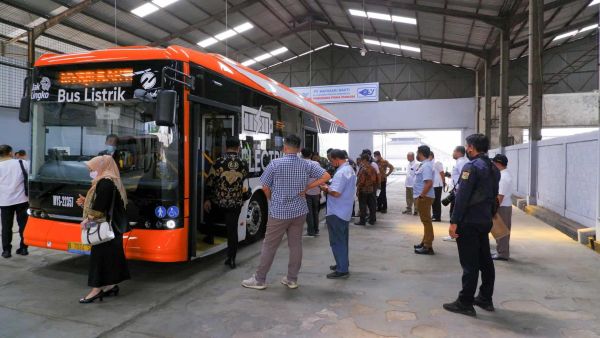“Indonesia – Sustainable Urban Transport Program (SUTRI NAMA)” has facilitated cross-sectorial cooperation essential for infrastructure investments, final Evaluation and Learning Exercise finds

The project “Indonesia—Sustainable Urban Transport Program (SUTRI NAMA)” aimed to change urban transportation in Indonesia by providing local governments with technical know-how, capacity building, and policy guidance. Through this comprehensive national urban transport program, the project sought to make Indonesia’s cities more liveable, efficient, and environmentally friendly.
On this account, during the period of September-October 2022, AMBERO and Oxford Policy Management undertook a final Evaluation and Learning Exercise (ELE) on the progress of the project.
Below are some of the key findings of the ELE:
The project has supported the coordination and connection across different sectors and government levels to improve the interconnectedness between relevant authorities. It has provided training, facilitated meetings, and conducted market-sounding with financing institutions to connect with relevant stakeholders.
The SUTRI NAMA programme was designed effectively by the project team, but implementation and execution were affected by external factors, such as the Covid-19 pandemic impeding capacity-building activities.
There are early signs of the project’s approach being mainstreamed into the Ministry of Transport, and there is a great degree of alignment between the project scope and the governmental strategy on urban transport.
The following lessons learnt and recommendations were derived by the evaluators of the ELE for future projects in the transport sector:
Acknowledging that transport is a cross-cutting sector and thus requires strong coordination and commitment from various institutions is essential. It is important to recognise the importance of non-government entities that can provide technical support and advice as well as coordination mechanisms to help facilitate the implementation and management of transport projects.
At the sub-national level, further coordination and alignment are needed to ensure the shared vision in building mass transport for the respective areas. Despite having the same goal of building a transport system, some leaders might have different perceptions of the methods to pursue, affecting their commitment to building sustainable transport.
Financing remains the key challenge in developing urban transport systems. The key lesson is that it is hard to generate integration as each city is independent, diverse, and focused on its own transport planning agenda.
Following the main findings and recommendations of the ELE, the TSU and the project have compiled a management response to address the key points that were raised.
The management response and the full final ELE report are available in the Knowledge & Learning Hub.
The Mitigation Action Facility is a joint initiative of the German Federal Ministry for the Economic Affairs and Climate Action (BMWK), UK’s Department for Energy Security & Net Zero, the Danish Ministry of Climate, Energy and Utilities (KEFM), the Danish Ministry of Foreign Affairs (MFA), the European Union and the Children’s Investment Fund Foundation (CIFF).
